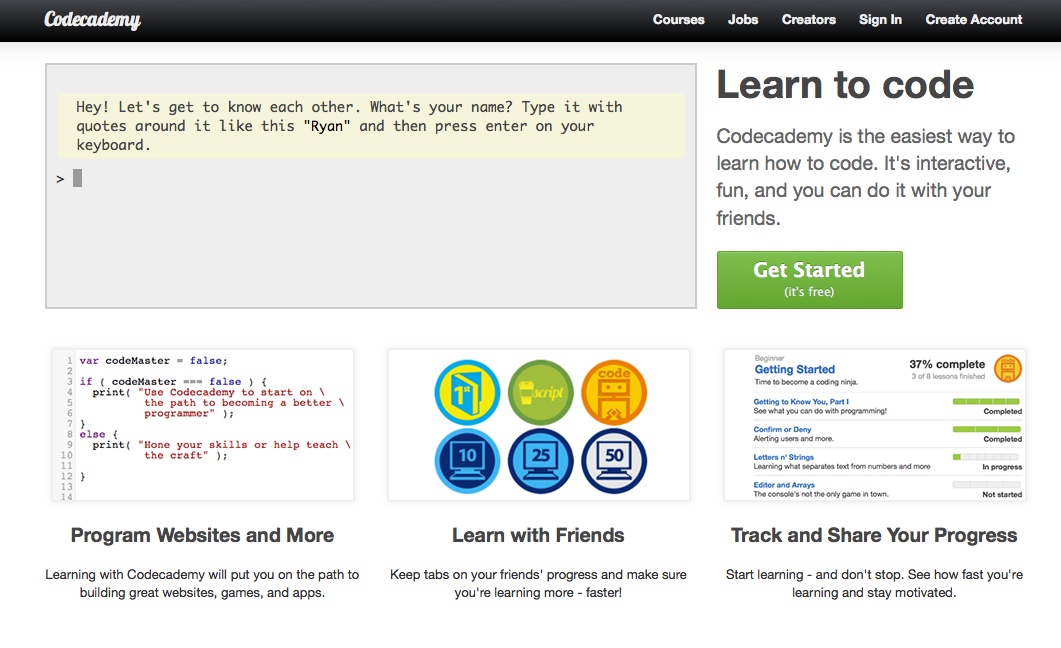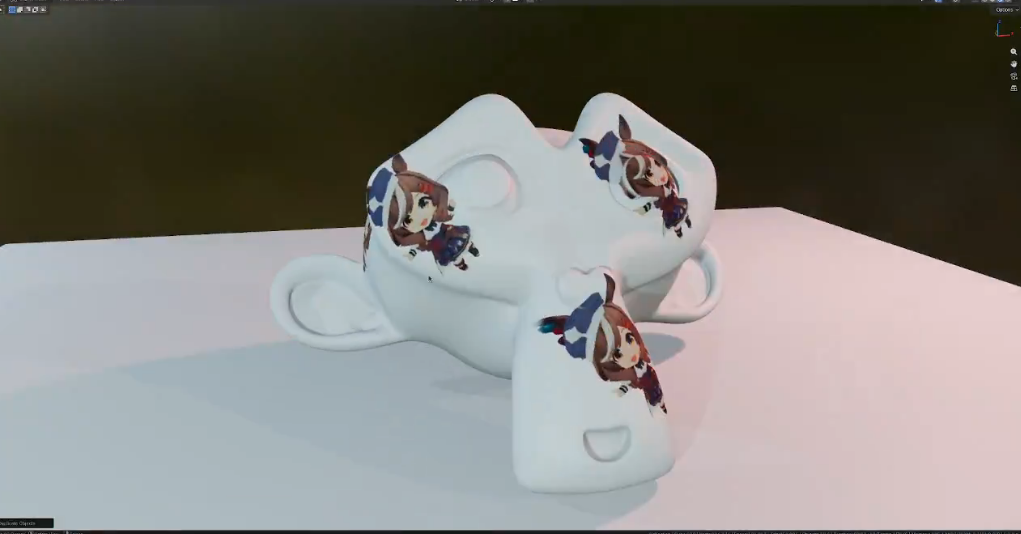Ryan Bubinski on Codecademy
Codecademy provides free interactive JavaScript tutorials and has attracted over one-million users in just six months. We talk to Ryan Bubinski, co-founder of the startup that claims it's the easiest way to learn how to code
Sign up to Creative Bloq's daily newsletter, which brings you the latest news and inspiration from the worlds of art, design and technology.
You are now subscribed
Your newsletter sign-up was successful
Want to add more newsletters?

Five times a week
CreativeBloq
Sign up to Creative Bloq's daily newsletter, which brings you the latest news and inspiration from the worlds of art, design and technology.

Once a week
By Design
Sign up to Creative Bloq's daily newsletter, which brings you the latest news and inspiration from the worlds of art, design and technology.

Once a week
State of the Art
Sign up to Creative Bloq's daily newsletter, which brings you the latest news and inspiration from the worlds of art, design and technology.

Seasonal (around events)
Brand Impact Awards
Sign up to Creative Bloq's daily newsletter, which brings you the latest news and inspiration from the worlds of art, design and technology.
.net: What made you set up Codecademy?
Ryan Bubinski: Codecademy was developed to solve problems that the two of us had. I have been teaching development at Columbia on the weekends and had been looking for a way to scale interactive in-person instruction, while Zach had always been frustrated with books and videos as a way to learn to code. We think Codecademy makes it easier for anyone to learn to code and, now, for anyone to teach development as well.
.net: How does Codecademy differ from similar sites that teach how to code, such as Code School?
RB: Codecademy is focused on a totally interactive way to code – at the moment, we don't have video tutorials or longer text-based tutorials. Beyond that, we're a platform – we're letting anyone create courses for anyone else to consume.
.net: Your courses also include gamification elements such as points and trophies users rack up. Why?
RB: We want our users to stay motivated so we give them incentives to continue learning.
.net: How do you design and build your courses, and what's under the hood?
RB: Only a few of our courses were designed in-house – the rest were created by our users with our course creator platform. We use a WYSIWYG editor that we've created (the same one as our users).
.net: How many users have given Codecademy a go so far?
RB: More than one-million users have been through Codecademy lessons so far.
.net: How has the new Code Year initiative gone done?
RB: Code Year has been around since 1 January and has seen more than 385,000 people who have started to learn to code.

.net: What are the main challenges in creating these courses? We noticed you occasionally need to take down courses for maintenance.
RB: We took down a jQuery course for maintenance after we rewrote the evaluation engine. We also tweak courses based on user feedback and the data that we're seeing as well.
Sign up to Creative Bloq's daily newsletter, which brings you the latest news and inspiration from the worlds of art, design and technology.
.net: Why did you start with JavaScript and is there a plan to expand into other platforms such as HTML, CSS and PHP?
RB: We think JS is a great first language for people to learn. Our course creator includes support for HTML, CSS, Ruby, and Python, and you'll start to see more courses in different languages soon.
.net: Are you accepting lessons from 'guest tutors'?
RB: We are – tons of Codecademy users are creating lessons at codecademy.com/creators. In fact, it's a key part of Codecademy. We think it's important for the best teachers to create content on different subjects, so we let anyone create lessons.
.net: How are you going to make money with Codecademy?
RB: Revenue is a focus going forward, but it's not something we talk about now.
.net: What's next for Codecademy?
RB: We're making Codecademy the best place to teach and learn programming. We've been pretty successful helping newer programmers learn about the basics of development, and now we're working with course creators to publish more awesome content. We're here to make a totally new interactive learning experience to create a new generation of developers.

The Creative Bloq team is made up of a group of art and design enthusiasts, and has changed and evolved since Creative Bloq began back in 2012. The current website team consists of eight full-time members of staff: Editor Georgia Coggan, Deputy Editor Rosie Hilder, Ecommerce Editor Beren Neale, Senior News Editor Daniel Piper, Editor, Digital Art and 3D Ian Dean, Tech Reviews Editor Erlingur Einarsson, Ecommerce Writer Beth Nicholls and Staff Writer Natalie Fear, as well as a roster of freelancers from around the world. The ImagineFX magazine team also pitch in, ensuring that content from leading digital art publication ImagineFX is represented on Creative Bloq.
